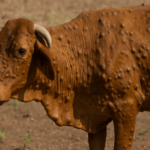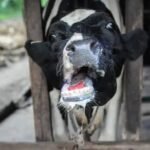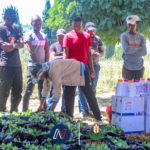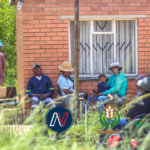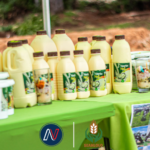In the previous financial year the Ministry of Agriculture, Food Security, and Nutrition projects to generate over M10.6 million in direct revenues.
This was revealed by the 2025/2026 Consolidated Budget Report which recorded a growing recognition of the Agriculture sector’s potential to generate meaningful income through value chain development, livestock trade, and exports, strengthening the sector as a strong contributor, playing a pivotal role in the economy, not just as a livelihood for the majority of the rural population, but increasingly as a contributor to public revenue.
Although the contribution of agriculture to the country’s GDP has traditionally been modest, hovering around 5-8%, the sector’s broader economic impact is increasingly visible through tax collections, permit fees, and revenue from processing and trading activities.
The Ministry of Agriculture, Food Security, and Nutrition reported that revenues collected through agriculture-related services such as livestock branding, laboratory testing, veterinary inspections, and producer trading licenses, were gradually rising.
In the previous financial year, the Ministry’s projects generated over M10.6 million in direct revenues, broken down as follows;
- M4.2 million from livestock auctions and branding services;
- M3.1 million from laboratory testing and veterinary inspections;
- M2.3 million from produce trading licenses and certification fees;
- M1 million from miscellaneous services including soil testing and inspection levies.
“Additionally, services such as soil testing, farm produce inspections, and disease surveillance have created new income channels, especially in the lowlands where commercial farming is gaining traction.”
The budget report also attributes revenue growth to improved governance systems within the agriculture sector.
“The rollout of digital registries for livestock and e-permit systems for agricultural trade has reduced leakages and improved compliance among traders and commercial farmers.
“The digitisation of agriculture-related transactions is expected to boost revenue collection and reduce underreporting,” the report stated.
The report noted that one of the most notable contributors to agricultural revenue is the wool and mohair subsector, citing that with the support from the Wool and Mohair Promotion Project (WAMPP), Lesotho has revived its international reputation for high-quality mohair.
“Revenues from wool and mohair sales increased significantly over the past year, with an estimated M256 million in exports recorded.”
The report indicated that the revenue, while mostly benefiting farmers directly, also flows to the government through export licensing, shearing shed rental fees, and transaction levies, which collectively contributed approximately M4.8 million to public coffers.
The horticulture value chain is also emerging as a key revenue stream as reported, with the notion that through initiatives like the Smallholder Agriculture Development Project (SADP II), cooperatives and individual farmers are accessing regional markets.
“Sales of tomatoes, green beans, cabbage and peaches to both domestic supermarkets and South African buyers have contributed to job creation, increased rural incomes, and added at least M2.7 million in VAT and related sales taxes,” the report said.
However, the report also cautions that revenue potential remains largely untapped due to issues like poor logistics, limited value addition and low enforcement of trade regulations.
It stressed that informal trade, particularly across the South African border, remains high and much of this activity goes unrecorded.
“The Ministry is currently collaborating with the Ministry of Trade to formalise cross-border agricultural commerce and improve earnings. In the upcoming financial year, the Ministry intends to enhance its revenue streams by investing in agro-processing facilities, commercialising government-owned land, and upgrading auction facilities. These plans aim to transform agriculture from a consumption-driven activity to a revenue-generating engine for Lesotho’s economy,” the report noted.

